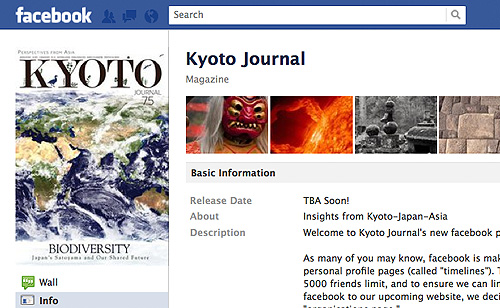Post published in January, 2012
So, is Facebook your newspaper? If you are under 34 the answer is probably yes.
Even a year ago (2011) 48% of 18-34 year olds checked Facebook when they woke up. Sound familiar? It’s the morning paper. The difference is 28% do this before even getting out of bed.
48% of young Americans say Facebook is the way they find out about news.* Silly, shallow, outrageous? Maybe not.

My parents—who are in their 80s—religiously watch the 6:00 network news. I cannot imagine myself doing this. It seems an anachronism. I do read The New York Times online. Once upon a time I had it delivered to my door. How quaint.
So is Facebook an alternative to The New York Times? Hardly, but depending on who you have selected to supply your news feed with content, it can be pretty damn good for news.
Having lived for many years in Japan, I still have many connections there. When last year’s disaster (earthquake, tsunami, then nuclear disaster) hit Japan I wanted good information about what was happening, and conventional news media—especially tv—was not able to deliver.
Facebook came to the rescue for me.
It became my best source of news and insight on the matter, and led me to some of the resources that inspired Radiation, Disaster & Hubris, which is one of the most read posts I’ve written. This happened because of two factors. One, I had friends who were there and reporting on their experiences through Facebook, and two, the Kyoto Journal had just started its Facebook page and was doing a great job of sourcing useful reports. I was simultaneously getting the first hand accounts from those I knew and cared about, who were being directly affected by the events, and getting well-selected material and analysis from local and global sources sorted through by Kyoto Journal editors. All this was provided to me via Facebook on my news feed.
So is Facebook an alternative to The New York Times? Hardly, but depending on who you have selected to supply your news feed with content, it can be pretty damn good for news.
This kind of combined reporting was incredibly satisfying in terms of what I needed and wanted to know. Facebook made it possible.
By contrast, my wife, who notably is not on Facebook, had to wade through hours of live coverage on CNN that was often lacking in insight, and tended to be repetitive and sensational—all that time and effort on her part so that she could NOT really know what was going on or what it meant.
My experience in this case is an illustration of how the role of Facebook continues to expand. If you are a public-facing institution or business, it’s clear that you should consider the implications of this change. Think about how you tell, or rather how you facilitate the retelling, of your story.
Facebook is not my primary source of news, but I acknowledge it as a legitimate means of access to news and information. It has the capacity to target things I’m most interested in and in the right circumstances—like with last year’s disaster in Japan—serves as a very good news source indeed.


Ask for help.
We are kind, thorough and ready when you are. You just need to ask.